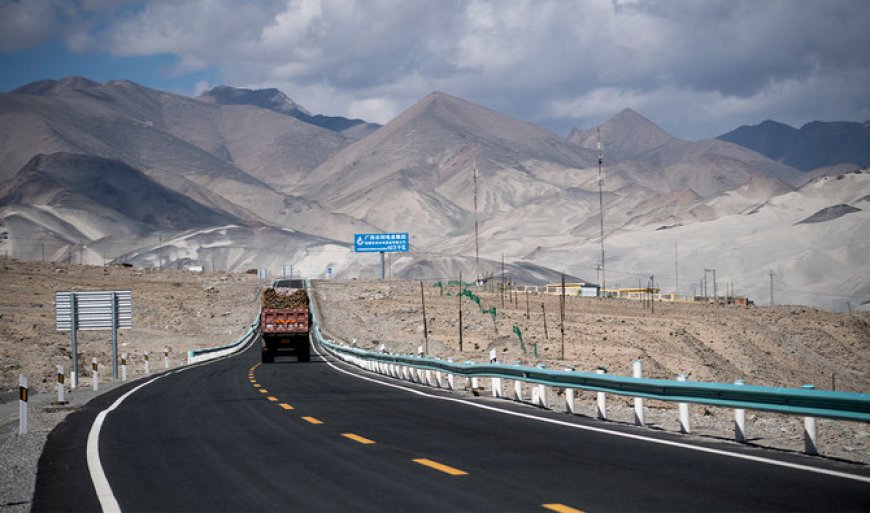Govt Announces Major Tax Exemptions for Gilgit-Baltistan Businesses
Pakistan announces major tax exemptions for Gilgit-Baltistan businesses, removing sales tax, income tax, and excise duty on imports to boost trade, support local communities, and revive cross-border commerce.

In a landmark step toward economic relief and regional empowerment, the federal government has announced sweeping tax exemptions for businesses in Gilgit-Baltistan (GB). The move, unveiled by Federal Minister for Power Awais Ahmed Khan Leghari, exempts a wide range of goods imported for local consumption from federal levies, including sales tax, income tax, and excise duty.
Relief Package for Gilgit-Baltistan
Addressing a joint press conference on Wednesday, flanked by Chief Minister Haji Gulbar Khan and representatives of the traders’ community, Minister Leghari said the decision was a direct outcome of Prime Minister Shehbaz Sharif’s directives to prioritize the welfare of the people of Gilgit-Baltistan.
He noted that a committee formed on August 17, 2025, to review GB’s trade and community concerns had finalized its recommendations in just six weeks. These proposals were submitted to the Prime Minister, who approved them in full.
“This is a historic day for the people of Gilgit-Baltistan,” said Leghari.
“The government has listened to the voices of traders, community leaders, and political representatives. These exemptions will remove hurdles in imports, exports, and transit trade, creating a stronger, more competitive environment for local businesses.”
Leghari acknowledged the role of FBR Chairman and his team, praising their cooperation throughout the review process. He also highlighted the involvement of the entire political leadership of Gilgit-Baltistan, which he said contributed meaningfully to the consensus-based recommendations.
He added that the Prime Minister’s approach was guided by the principle of inclusive development.
“This is not just a decision about taxation. It reflects Pakistan’s commitment to integrate Gilgit-Baltistan into the national economy and ensure that its people benefit from the same opportunities as the rest of the country,” Leghari stressed.
The press conference was attended by members of the Supreme Council, GB Chamber of Commerce, and regional business associations.
Leghari praised their input, noting that practical solutions had been developed in partnership with those directly affected. He assured the business community that the government would continue to work closely with them to implement the new policies effectively.
The announcement comes at a time when trade activities at the Sost border between Pakistan and China have slowed down. The relief package is expected to revitalize cross-border trade and encourage businesses to re-engage in commercial activities.
Ashfaq Ahmed, President of the GB Chamber of Commerce, urged traders to resume operations at Sost starting Thursday.
“The tax relief will not only rejuvenate commercial momentum but also strengthen our regional trade ties,” he said. “This decision provides the certainty and support traders need to get back on their feet.”
Experts say the decision could reshape the business landscape of Gilgit-Baltistan, which has long struggled with limited economic opportunities due to its remote location and harsh terrain.
By removing federal levies on goods imported for local consumption, the government is:
-
Lowering the cost of doing business.
-
Encouraging investment in small and medium enterprises (SMEs).
-
Creating jobs and income streams for local communities.
-
Strengthening GB’s role as a vital trade hub for the China-Pakistan Economic Corridor (CPEC).
Analysts argue that such policies are essential if Pakistan wants to fully tap the region’s potential as a gateway to Central Asia.
While the announcement has been widely welcomed, experts caution that effective implementation will be crucial.
Some of the challenges include:
-
Ensuring that the exemptions are applied transparently without creating loopholes for smuggling.
-
Monitoring how the benefits are distributed across small traders versus larger business groups.
-
Balancing local needs with Pakistan’s broader fiscal constraints.
“The government has taken a bold step,” said an Islamabad-based economist.
“But unless there is strict oversight, these exemptions could be exploited. Proper mechanisms must ensure that the benefits actually reach Gilgit-Baltistan’s ordinary traders and residents.”
The federal government’s announcement of major tax exemptions for Gilgit-Baltistan has been hailed as a milestone in the region’s economic development. By eliminating levies such as sales tax, income tax, and excise duty on imported goods, Islamabad has responded to decades-long demands from local traders and communities.
With the backing of both federal and provincial leadership, the relief package is expected to revive cross-border trade, lower costs for businesses, and empower local communities. However, the success of this initiative will depend heavily on transparent implementation and long-term commitment from both Islamabad and Gilgit.

 Israr Ahmed
Israr Ahmed